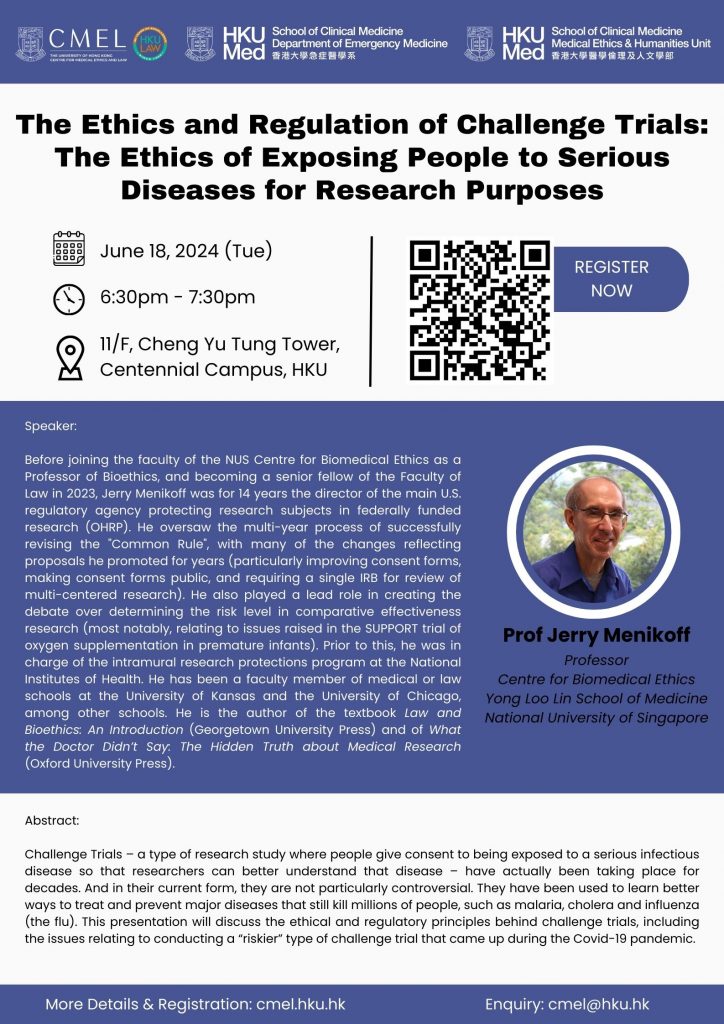Registration Link: Click Here
Evening Seminar: The Ethics and Regulation of Challenge Trials: The Ethics of Exposing People to Serious Diseases for Research Purposes
Co-organisers:
Centre for Medical Ethics and Law, HKU
Department of Emergency Medicine, HKUMed
Medical Ethics and Humanities Unit, HKUMed
Date: 18 June 2024 (Tuesday)
Time: 6:30 – 7:30pm HKT
Venue: 11/F, Cheng Yu Tung Tower, Centennial Campus, HKU
Mode: In-person
Registration Link: Click Here
Challenge Trials – a type of research study where people give consent to being exposed to a serious infectious disease so that researchers can better understand that disease – have actually been taking place for decades. And in their current form, they are not particularly controversial. They have been used to learn better ways to treat and prevent major diseases that still kill millions of people, such as malaria, cholera and influenza (the flu). This presentation will discuss the ethical and regulatory principles behind challenge trials, including the issues relating to conducting a “riskier” type of challenge trial that came up during the Covid-19 pandemic.
Speaker:
Professor Jerry Menikoff
Professor, Centre for Biomedical Ethics Yong Loo Lin School of Medicine National University of Singapore
Before joining the faculty of the NUS Centre for Biomedical Ethics as a Professor of Bioethics, and becoming a senior fellow of the Faculty of Law in 2023, Jerry Menikoff was for 14 years the director of the main U.S. regulatory agency protecting research subjects in federally funded research (OHRP). He oversaw the multi-year process of successfully revising the “Common Rule”, with many of the changes reflecting proposals he promoted for years (particularly improving consent forms, making consent forms public, and requiring a single IRB for review of multi-centered research). He also played a lead role in creating the debate over determining the risk level in comparative effectiveness research (most notably, relating to issues raised in the SUPPORT trial of oxygen supplementation in premature infants). Prior to this, he was in charge of the intramural research protections program at the National Institutes of Health. He has been a faculty member of medical or law schools at the University of Kansas and the University of Chicago, among other schools. He is the author of the textbook Law and Bioethics: An Introduction (Georgetown University Press) and of What the Doctor Didn’t Say: The Hidden Truth about Medical Research (Oxford University Press).


